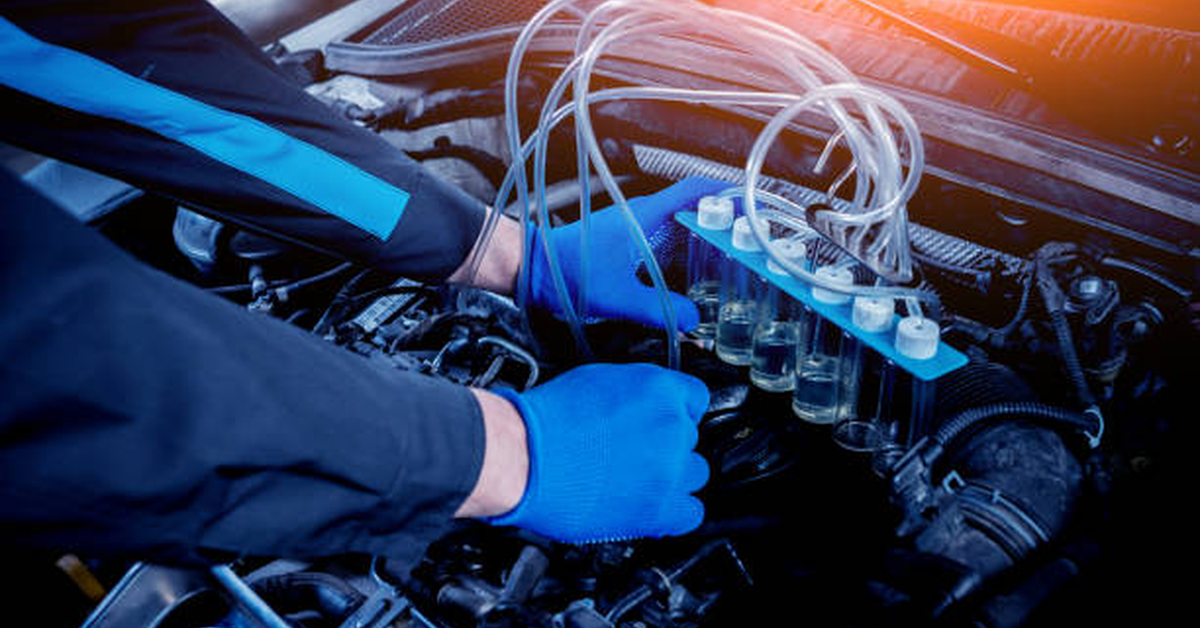
The modern vehicle engine is a masterpiece of engineering, designed to deliver power, efficiency, and smooth performance. At the heart of this system lies the fuel injection mechanism, a crucial component responsible for ensuring that the right amount of fuel is delivered to the combustion chamber in the correct form. Over time, however, even the most advanced systems face wear and contamination. One of the most common problems that vehicle owners encounter is clogged or dirty injectors. This is where fuel injector cleaner becomes important.
Fuel injector cleaners are chemical solutions formulated to remove carbon buildup, varnish deposits, and impurities that accumulate inside the injectors and fuel system. They are simple to use, relatively inexpensive, and often highly effective at restoring performance. But beyond their apparent convenience, there is a complex story of chemistry, mechanics, and maintenance strategies that every car owner should understand before using them.
This article will explore every aspect of fuel injector cleaners—what they are, how they work, why they matter, their advantages and disadvantages, step-by-step usage, and a deeper look into their role in long-term vehicle maintenance.
Understanding the Fuel Injection System
To appreciate the value of fuel injector cleaners, it’s important to understand the basics of the fuel injection system.
Function of Fuel Injectors
Fuel injectors are electronically controlled nozzles that spray fuel into the combustion chamber at precise intervals. Unlike older carburetors, injectors offer better fuel atomization, improved combustion, and increased efficiency.
Each injector must:
- Deliver the correct volume of fuel.
- Atomize the fuel into a fine mist for efficient burning.
- Operate with precise timing, coordinated with the ignition system.
Common Problems with Fuel Injectors
Over time, fuel injectors may experience issues such as:
- Carbon Deposits: Leftover carbon from incomplete combustion can block nozzle tips.
- Varnish and Gum Build-Up: Residual fuel chemicals form sticky layers inside injectors.
- Reduced Atomization: Instead of fine mist, fuel sprays in uneven droplets, leading to inefficient burning.
- Misfiring and Rough Idling: Dirty injectors disrupt smooth fuel delivery.
- Poor Fuel Economy: More fuel is consumed to compensate for inefficient combustion.
This is where cleaning solutions become valuable.
What Is a Fuel Injector Cleaner?
A fuel injector cleaner is a specially designed chemical additive that you pour into the fuel tank. As the fuel passes through the system, the cleaner dissolves and removes carbon deposits, varnish, and other contaminants.
Key Ingredients
While formulations vary, most cleaners contain:
- Polyetheramine (PEA): The most effective detergent for breaking down carbon deposits.
- Polyisobutylene (PIB): Cleans light varnish and prevents deposits.
- Polyisobutylene amine (PIBA): Focuses on preventing injector fouling.
The strength of a cleaner largely depends on whether it contains PEA, considered the gold standard.
How It Works
- The cleaner mixes with fuel in the tank.
- As the engine runs, the treated fuel passes through injectors.
- The detergent dissolves carbon, varnish, and dirt.
- Debris is either burned off in combustion or expelled through exhaust gases.
Benefits of Using Fuel Injector Cleaner
Fuel injector cleaners offer multiple advantages when used correctly.
1. Improved Fuel Efficiency
Clogged injectors often deliver excess or uneven fuel. Cleaning restores optimal spray patterns, ensuring fuel burns more completely, which improves miles per gallon (MPG).
2. Restored Engine Performance
Engines with dirty injectors often feel sluggish or unresponsive. A cleaner helps regain lost horsepower by improving combustion efficiency.
3. Smoother Idle and Reduced Misfires
Deposits can cause rough idling and occasional misfires. Cleaner use stabilizes engine operation.
4. Lower Emissions
Incomplete combustion leads to higher carbon monoxide and hydrocarbon emissions. Clean injectors burn fuel more thoroughly, reducing environmental impact.
5. Extended Injector Life
Regular maintenance prevents excessive buildup, reducing strain and prolonging injector lifespan.
Potential Downsides of Fuel Injector Cleaners
While generally safe, there are considerations:
- Limited Effectiveness on Severe Deposits: If injectors are heavily clogged, professional ultrasonic cleaning may be required.
- Variability in Formulations: Some cleaners use cheaper detergents that provide minimal benefit.
- Overuse Risks: Excessive use may cause slight wear on seals or unnecessary fuel dilution.
- False Expectations: A cleaner cannot fix mechanical damage like cracked injectors or failing pumps.
When Should You Use a Fuel Injector Cleaner?
Indicators That Suggest Cleaning
- Noticeable drop in fuel economy.
- Engine misfires or stalling.
- Rough idling or hesitation during acceleration.
- Reduced power or sluggish performance.
- Increased exhaust smoke.
Preventive Maintenance
For many drivers, using a cleaner every 3,000 to 5,000 miles can act as preventive maintenance, ensuring deposits do not build up in the first place.
Step-by-Step Guide to Using Fuel Injector Cleaner
Using a fuel injector cleaner is simple but requires attention to detail for best results.
- Read the Instructions: Always check the label of the product you are using.
- Check Fuel Level: Most cleaners are designed to be added to a near-empty tank, followed by a full refill.
- Pour Cleaner into Tank: Empty the recommended amount directly into the fuel tank.
- Refuel Immediately: Fill the tank with gasoline or diesel, depending on your vehicle.
- Drive Normally: Allow the cleaner to circulate through the system over the next full tank of fuel.
- Monitor Results: Notice improvements in idle smoothness, acceleration, and mileage.
Types of Fuel Injector Cleaners
Different products exist to suit specific needs.
| Cleaner Type | Primary Ingredient | Best For | Frequency of Use |
|---|---|---|---|
| PEA-Based Cleaner | Polyetheramine | Deep cleaning carbon deposits | Every 3,000–5,000 miles |
| PIB-Based Cleaner | Polyisobutylene | Preventive light cleaning | Regular maintenance |
| PIBA-Based Cleaner | PIB Amine | Reducing injector fouling | Occasional use |
Fuel Injector Cleaner vs. Professional Cleaning
| Aspect | Fuel Injector Cleaner | Professional Cleaning (Ultrasonic or Mechanic) |
|---|---|---|
| Cost | Low ($10–$20 per bottle) | High ($80–$200 service) |
| Ease of Use | DIY, poured into tank | Requires mechanic visit |
| Effectiveness | Moderate to high for light/moderate deposits | Very high, restores injectors to like-new condition |
| Time | Works over one tank of fuel | Immediate after service |
| Best Use Case | Preventive and minor cleaning | Severe clogging or injector replacement issues |
Comparing Gasoline vs. Diesel Injector Cleaners
Fuel injection systems vary between gasoline and diesel engines.
| Aspect | Gasoline Engines | Diesel Engines |
|---|---|---|
| Operating Pressure | Lower pressure | Higher pressure |
| Injector Sensitivity | Less sensitive to deposits | Very sensitive due to fine tolerances |
| Cleaner Formulation | Designed for carbon removal | Includes lubrication agents for pumps/injectors |
| Maintenance Frequency | Every 3,000–5,000 miles | Every 2,000–3,000 miles (more frequent) |
Common Myths About Fuel Injector Cleaners
- “They can fix any injector problem.”
False. They cannot repair mechanical damage. - “All brands are the same.”
Not true. Formulation matters, especially PEA concentration. - “Using more cleaner means better results.”
Incorrect. Overuse may dilute fuel unnecessarily. - “You only need them for old cars.”
Wrong. Even modern vehicles benefit from preventive cleaning.
Environmental Considerations
Fuel injector cleaners indirectly contribute to sustainability by improving combustion efficiency and reducing harmful emissions. Cleaner engines consume less fuel, lowering carbon footprints. However, overuse of chemical cleaners can contribute to chemical waste. Responsible usage is essential.
Best Practices for Long-Term Maintenance
- Use high-quality fuel whenever possible.
- Add a cleaner as part of routine maintenance every oil change.
- Avoid waiting until severe clogging occurs.
- Combine with periodic professional servicing for maximum reliability.
- Keep track of mileage and vehicle performance after each treatment.
Case Study: Effects of Regular Cleaner Use
A mid-size sedan with 100,000 miles showed:
- Before Cleaner: Mileage at 21 MPG, rough idle, occasional misfire.
- After Three Treatments Over 9,000 Miles: Mileage improved to 24 MPG, idle smoothed out, no misfires recorded.
This demonstrates that preventive care can lead to noticeable long-term improvements.
Final Thoughts
Fuel injector cleaner is not a miracle cure, but it is an invaluable maintenance tool. By preventing deposits, improving efficiency, and prolonging component life, it plays a vital role in modern engine care. Whether you drive a gasoline-powered sedan, a diesel truck, or even a high-performance sports car, understanding how and when to use injector cleaners can save money, enhance performance, and extend the life of your vehicle.
Used responsibly, these cleaners serve as both a preventive measure and a remedy for early-stage injector problems, making them a must-have in every driver’s toolkit.
FAQs
1. How often should I use a fuel injector cleaner?
Most vehicles benefit from cleaner use every 3,000–5,000 miles, or roughly at each oil change.
2. Can injector cleaner damage my engine?
No, when used as directed, it is safe. Overuse or using low-quality cleaners may cause minimal risks.
3. Is there a difference between diesel and gasoline cleaners?
Yes, diesel cleaners include lubricating additives to protect high-pressure components, unlike gasoline versions.
4. Can injector cleaner improve fuel economy immediately?
In cases of mild to moderate deposits, improvements may be noticed within one tank of fuel.
5. Do new cars need fuel injector cleaners?
Yes, even new cars benefit, especially if driven in city conditions with frequent short trips that encourage deposit buildup.





